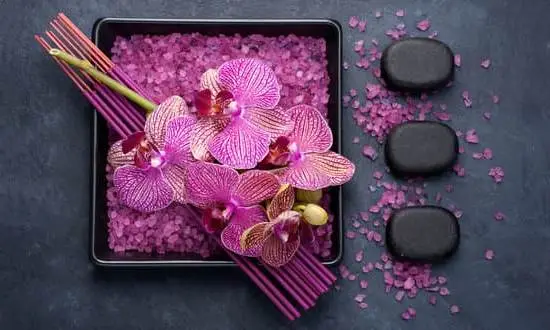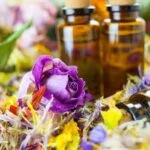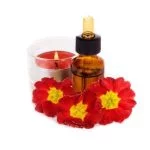Aromatherapy is a holistic approach to stress relief that harnesses the power of scents and essential oils to promote relaxation and overall well-being. From its origins in ancient civilizations to its modern-day popularity, aromatherapy has become a widely recognized therapeutic practice. By utilizing various methods such as diffusers, massage oils, and inhalers, aromatherapy offers a natural solution to managing stress and its effects on the body.
Aromatherapy began thousands of years ago, with evidence of its use found in ancient civilizations such as Egypt and China. It involves the use of plant-based essential oils that are derived from flowers, herbs, trees, and other natural sources. These oils are then used in different ways to deliver their scent and benefits. Diffusers allow the aromatic molecules to be dispersed into the air, while massage oils can be applied topically for both scent and physical relaxation.
Stress is an integral part of daily life for many people, but its negative effects on mental and physical health should not be underestimated. Chronic stress can lead to a variety of health issues such as headaches, insomnia, weakened immune system function, and even depression or anxiety disorders.
In today’s fast-paced society, it is important for individuals to find healthy coping mechanisms to reduce stress levels. Aromatherapy offers an effective solution by targeting the nervous system through scent receptors in the brain.
Understanding Stress and its Effects on the Body
Stress is a physiological response that occurs when an individual perceives a threat or challenge, whether real or imagined. It triggers the release of stress hormones such as cortisol and adrenaline, which prepare the body for fight or flight. While stress can be beneficial in certain situations, chronic stress can have detrimental effects on both mental and physical health.
Mental health is greatly impacted by stress, with symptoms such as anxiety, irritability, difficulty concentrating, and feelings of overwhelm becoming common. Prolonged exposure to stress can also contribute to the development or exacerbation of conditions such as depression and anxiety disorders. Moreover, chronic stress has been linked to various physical health problems including cardiovascular disease, digestive issues, weakened immune system, and even accelerated aging.
Statistics highlight the prevalence of stress in society today. According to the American Psychological Association (APA), 75% of adults reported experiencing moderate to high levels of stress in the past month. In addition, surveys have shown that work-related stress affects 80% of Americans, with job pressure being the primary source of stress for many individuals.
To combat these negative effects on our well-being, many people turn to complementary therapies like aromatherapy for stress relief. Aromatherapy utilizes scents from essential oils derived from plants to promote relaxation and reduce stress levels. By inhaling these scents or applying them topically through massage oils or bath products, aromatherapy offers a natural and holistic approach to managing stress.
Incorporating aromatherapy into your daily routine can have transformative effects on your overall well-being. The next section will delve into the science behind aromatherapy’s ability to provide stress relief by exploring how scents interact with our brain and nervous system.
The Science Behind Aromatherapy and Stress Relief
Aromatherapy is more than just a pleasant scent – it has a scientific basis for its stress-relieving properties. When certain scents are inhaled, they can directly impact the brain and nervous system, leading to relaxation and reduced stress levels.
The olfactory system, responsible for our sense of smell, is connected to the limbic system in the brain. The limbic system plays a crucial role in regulating emotions, memory, and stress responses. When we inhale essential oils, the odor molecules travel through the nose and interact with receptors in the olfactory system. These receptors then send signals to the limbic system, triggering various responses.
Scientific research has supported the effectiveness of aromatherapy in reducing stress. In a study conducted with college students, inhalation of lavender essential oil was found to significantly reduce anxiety levels and improve mood compared to a control group. Another study discovered that inhaling bergamot essential oil resulted in lower blood pressure and heart rate among participants who were exposed to a stressful task.
The chemicals within essential oils have different effects on the body. For example, lavender oil contains linalool and linalyl acetate which have calming properties. Chamomile oil contains chamazulene which acts as an anti-inflammatory agent. Bergamot oil contains chemical compounds like limonene and linalool which contribute to its stress-reducing effects.
Using aromatherapy as a natural remedy for stress can be done through various methods. Diffusers are popular tools that disperse essential oils into the air allowing for easy inhalation throughout a room or workspace. Inhalers or roll-on bottles are portable options that can be carried easily when on-the-go or during travel. Another method is adding essential oils to bath oils or lotions for relaxation during self-care routines.
By understanding how scent interacts with our brains and nervous systems, we can harness the power of aromatherapy for stress relief. Incorporating aromatherapy into our daily lives can promote relaxation and enhance overall well-being, providing a natural and holistic approach to managing stress.
Popular Aromatherapy Scents for Stress Relief
When it comes to aromatherapy, certain scents are particularly effective in promoting relaxation and alleviating stress. The following are some of the most commonly used scents in aromatherapy for stress relief:
- Lavender: Lavender is perhaps one of the most well-known scents for relaxation. Its calming properties have been studied extensively and shown to help reduce anxiety and improve sleep quality.
- Chamomile: Chamomile has long been used for its soothing properties. In aromatherapy, it is often used to promote relaxation and relieve tensions.
- Bergamot: Bergamot is a citrus fruit that emits a refreshing and uplifting scent. It has been found to help lower stress levels and promote a positive mood.
- Ylang Ylang: Ylang ylang has a sweet floral aroma that is known for its ability to reduce stress and anxiety. It can also help lower blood pressure and promote feelings of calmness.
- Frankincense: Frankincense has been used for centuries for its spiritual and calming properties. It has a rich, woody scent that helps promote relaxation and deep breathing.
These scents can be used individually or blended together to create a personalized aroma that suits your preferences. They can be diffused using an essential oil diffuser, added to massage oils, bath products, or used in inhalers.
| Scent | Properties |
|---|---|
| Lavender | Calming, reduces anxiety, improves sleep quality |
| Chamomile | Soothing, promotes relaxation, relieves tension |
| Bergamot | Refreshing, uplifting, lowers stress levels |
| Ylang Ylang | Sweet floral aroma, reduces stress and anxiety, promotes calmness |
| Frankincense | Spiritual, calming, promotes relaxation and deep breathing |
It is important to note that individual responses to scents can vary, so it may be beneficial to experiment with different aromas to find those that work best for you. Additionally, always ensure that you are using high-quality essential oils from reputable sources.
Different Methods of Aromatherapy for Stress Relief
Overview of Different Methods
Aromatherapy can be incorporated into daily life in a variety of ways, allowing individuals to choose the method that best suits their preferences and lifestyle. One popular method is using diffusers, which disperse essential oils into the air, creating a calming and aromatic atmosphere. Diffusers come in different forms such as electric diffusers, candle diffusers, and reed diffusers, each offering unique benefits.
Electric diffusers are convenient and easy to use, while candle diffusers add a cozy ambiance to any space. Reed diffusers are a great option for those who prefer a subtle and constant release of fragrance.
Another method of aromatherapy for stress relief is inhalation. Inhalers containing concentrated essential oils can be easily carried in a pocket or purse, making them ideal for on-the-go stress relief. Simply inhaling the scent directly from the bottle or applying a few drops onto a tissue can provide quick relief during moments of heightened stress or anxiety.
For those seeking relaxation through self-care rituals, bath oils can be an excellent choice. Adding a few drops of essential oil to a warm bath not only creates an aromatic experience but also allows the body to absorb the therapeutic properties of the oils through the skin. This method provides both physical and mental relaxation, making it an effective way to unwind after a long day.
Benefits and Drawbacks
Each method of aromatherapy has its own set of benefits and drawbacks to consider when incorporating it into a daily routine. Diffusers offer the advantage of providing continuous fragrance throughout a space for extended periods without much effort required from the user. However, some people may find certain scents overwhelming if used in large quantities or for extended periods.
Inhalers are portable and discreet, making them suitable for use anywhere at any time. They allow for quick access to stress-relieving aromas on-the-go but may require more frequent replenishment of the essential oils within the inhaler.
Bath oils provide a luxurious and immersive experience, creating an environment conducive to relaxation. The warmth of the water enhances the diffusion of essential oils into the air, amplifying their effects. However, baths are time-consuming, and not everyone has access to a bathtub, which limits the accessibility of this method.
It is important to consider personal preferences, lifestyle factors, and the desired level of convenience when choosing a method of aromatherapy for stress relief. Experimenting with different methods can help individuals find what works best for them in managing stress and promoting relaxation.
Aromatherapy Techniques and Practices for Stress Management
Aromatherapy offers a variety of techniques and practices that can effectively help manage stress. By incorporating the use of scents and essential oils into daily routines, individuals can experience relaxation and find relief from the pressures of modern life.
One popular method of aromatherapy for stress management is using a diffuser. A diffuser releases essential oils into the air, allowing their scent to fill the room. This method is convenient as it can be used in various settings, such as home or office. Diffusers come in different types, including ultrasonic diffusers, nebulizing diffusers, and heat diffusers. Each type has its own advantages and disadvantages, so it’s important to choose one that suits individual preferences and needs.
Another effective technique is using aromatherapy inhalers. These small devices contain a blend of essential oils that can be directly inhaled for quick stress relief on-the-go. Inhalers are portable and discreet, making them ideal for situations where immediate stress reduction is needed, such as during high-pressure work meetings or busy commutes.
In addition to diffusers and inhalers, aromatherapy can also be integrated into self-care routines through the use of bath oils or massage oils. Adding a few drops of soothing essential oils like lavender or chamomile to a warm bath can create a calming atmosphere that promotes relaxation. Similarly, massaging diluted essential oils onto the skin can offer both physical and mental relaxation.
| Aromatherapy Method | Description |
|---|---|
| Diffusers | Used to disperse essential oil particles into the air for relaxation |
| Inhalers | Portable devices that allow direct inhalation of essential oil blends for quick stress relief |
| Bath oils | Addition of essential oils to warm baths for a relaxing and soothing experience |
| Massage oils | Diluted essential oils used to enhance massage therapy and promote relaxation |
It is important to note that individuals should always consider their own sensitivities, allergies, and preferences when selecting aromatherapy methods. Some people may have specific allergies or sensitivities to certain scents or essential oils, so it is recommended to perform a patch test before using any new products. Furthermore, it is advisable to consult a professional aromatherapist for guidance on proper usage and dilution ratios, especially if blending essential oils or creating personalized blends.
By incorporating aromatherapy techniques and practices into daily life, individuals can effectively manage stress and experience enhanced well-being. Whether it’s using diffusers to create a calming environment at home or inhaling stress-relieving blends on-the-go, aromatherapy offers a natural and holistic approach to stress reduction.
Personal Testimonials and Success Stories
There is no doubt that aromatherapy has gained popularity as a natural remedy for stress relief. Personal testimonials and success stories from individuals who have incorporated aromatherapy into their lives provide evidence of its effectiveness. These firsthand accounts shed light on the positive impact that aromatherapy has had on reducing stress levels and promoting overall well-being.
Many people have shared their experiences of using aromatherapy for stress relief and have highlighted the benefits they have enjoyed. One individual explained how incorporating lavender essential oil into their bedtime routine helped them relax and unwind, leading to better quality sleep and reduced stress levels throughout the day. Another person shared how bergamot oil in a diffuser at work significantly decreased their anxiety levels during high-pressure situations, allowing them to stay calm and focused.
These personal testimonials reinforce the scientific research supporting the effectiveness of aromatherapy in reducing stress. Using essential oils can trigger certain responses in the brain, such as activating the release of calming neurotransmitters like serotonin and promoting relaxation. The olfactory system plays a vital role in processing scents, which then communicate with areas in the brain responsible for emotion and memory. When specific scents are experienced, they can elicit positive emotions, relieve tension, and reduce stress.
By sharing these personal stories, individuals not only highlight their positive experiences with aromatherapy but also inspire others to give it a try. Aromatherapy offers a natural and holistic approach to managing stress that can be easily incorporated into daily life. Whether it’s through diffusers, inhalers, or bath oils, there are various methods available for everyone to find what works best for them.
Through personal testimonials and success stories, readers can gain insight into how others have successfully harnessed the power of aromatherapy for stress relief. These accounts serve as inspiration and motivation for individuals looking to incorporate this practice into their own lives. By witnessing the positive experiences of others, readers may feel encouraged to explore the world of aromatherapy and discover its benefits for themselves.
Precautions and Considerations for Using Aromatherapy
Aromatherapy is generally considered safe and can be a wonderful tool for stress relief and relaxation. However, it is important to take certain precautions and considerations into account when using aromatherapy to ensure a positive and safe experience.
Dilution Ratios
One of the most crucial precautions in aromatherapy is the proper dilution of essential oils. Essential oils are highly concentrated substances and should never be used directly on the skin without being diluted first. Failing to dilute essential oils properly can result in skin irritations, allergic reactions, or other adverse effects. It is recommended to dilute essential oils in carrier oils such as jojoba oil or sweet almond oil before applying them topically.
Allergies and Sensitivities
Another consideration when using aromatherapy is the potential for allergies or sensitivities to certain scents or specific essential oils. Some people may have individual reactions or sensitivities to certain oils, which can manifest as headaches, skin irritation, or respiratory discomfort. It is advisable to perform a patch test on a small area of skin before using any new essential oil to check for any adverse reactions.
Professional Guidance
While many individuals enjoy experimenting with aromatherapy at home, it is worth considering seeking guidance from a professional aromatherapist, especially when dealing with specific health conditions or during pregnancy. A trained aromatherapist can provide tailored recommendations based on individual needs and ensure safe usage of essential oils.
It is also important to remember that while aromatherapy can be beneficial for stress relief, it should not substitute professional medical advice or treatment for clinical anxiety or other mental health conditions. If you have an existing medical condition or are pregnant, it’s always best to consult with your healthcare provider before incorporating aromatherapy into your wellness routine.
By following these precautions and considerations, individuals can safely and effectively harness the power of aromatherapy for stress relief, promoting relaxation and enhancing overall well-being.
Conclusion
In conclusion, aromatherapy has proven to be an effective and natural way to manage stress and promote relaxation. The science behind how scents and essential oils interact with the brain and nervous system has been well-researched and supported by numerous studies. Various popular scents such as lavender, chamomile, and bergamot have demonstrated their ability to alleviate stress and induce a sense of calm.
Aromatherapy can be easily incorporated into daily life through different methods such as diffusers, inhalers, or bath oils. Each method comes with its own benefits and drawbacks, so individuals can choose the one that best suits their preferences and lifestyle. By following simple techniques and practices for using aromatherapy in different settings, individuals can effectively harness its power for stress management.
Personal testimonials and success stories further affirm the positive impact of aromatherapy on stress levels and overall well-being. These real-life experiences serve as inspiration for others to explore the benefits of aromatherapy for themselves. It is important to note that precautions should be taken when using aromatherapy, such as dilution ratios and considering potential allergies or sensitivities.
Frequently Asked Questions
What aroma reduces stress?
Lavender is a commonly used aroma that has been proven to reduce stress. Its soothing scent has a calming effect on the mind and body, helping to ease feelings of tension and anxiety.
Lavender works by stimulating the brain’s relaxation center, promoting a sense of tranquility and peace. Research has shown that inhaling lavender essential oil or using lavender-infused products can significantly reduce stress levels, making it an excellent choice for those seeking natural remedies to combat stress.
What are the benefits of aromatherapy?
Aromatherapy offers numerous benefits for both physical and mental well-being. One of the primary advantages is its ability to promote relaxation and alleviate stress. By inhaling certain aromas, such as lavender or chamomile, aromatherapy can trigger a positive emotional response in the brain, leading to reduced feelings of anxiety and improved mood.
Additionally, certain essential oils used in aromatherapy possess antibacterial and antiviral properties, which can help strengthen the immune system and ward off illness. Aromatherapy is also known for its pain-relieving properties, as some fragrances like peppermint or eucalyptus can help alleviate headaches or muscle soreness.
How does aromatherapy help anxiety and depression?
Aromatherapy plays a significant role in helping individuals cope with anxiety and depression. Essential oils used in aromatherapy can have a direct impact on the brain’s limbic system, which regulates emotions and mood. By inhaling specific scents like bergamot or ylang-ylang, aromatherapy triggers the release of neurotransmitters that promote relaxation and uplift mood, thus reducing symptoms of anxiety and depression.
Additionally, it has been found that engaging in aromatherapy sessions can increase overall emotional well-being by providing individuals with a sense of comfort, calmness, and support during challenging times. It should be noted that while aromatherapy can be beneficial as part of an integrative approach to managing anxiety and depression, it is not intended to replace professional therapy or medical treatment.

Are you looking for a natural way to improve your health and wellbeing?
If so, aromatherapy may be the answer for you.





